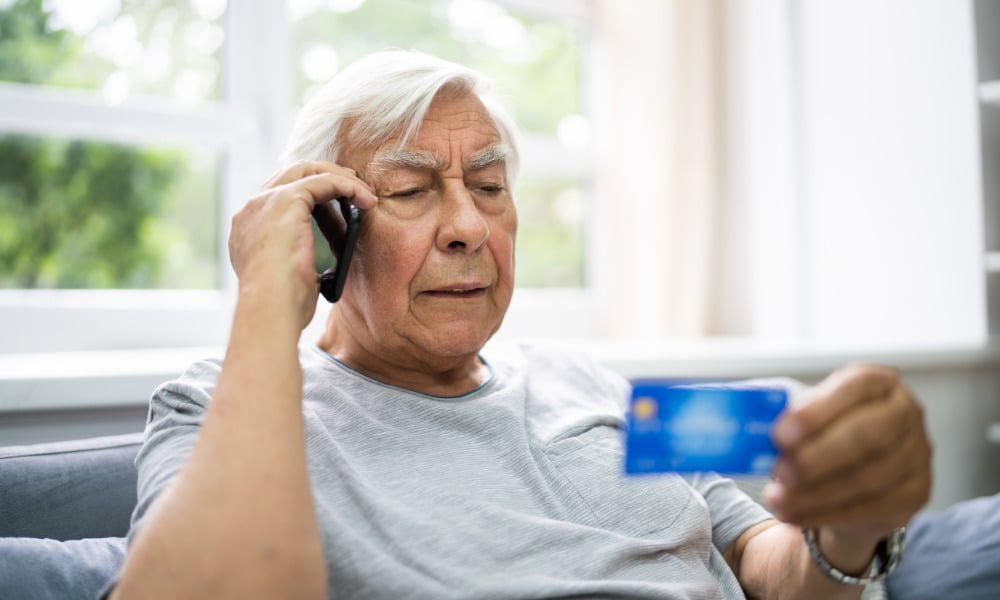“Grandma?”
“Yes! Bob, is that you?”
“Yes Grandma, it’s Bob! I’m sorry to bother you, but I need help! I’ve lost my wallet and need some money.”
“Oh! How can I help?”
By now, most people have heard of phone calls like this. They are a common way to scam unsuspecting and trusting victims out of money. These scams affect our most vulnerable population – our senior citizens. Often, the victim provides the caller sensitive and personal information about themselves without realizing it and then is asked by the caller to give them or a “friend” some cash or gift cards.
Unfortunately, these criminals have found another opportunity to effectuate these scams with the birth of the COVID-19 pandemic. Not only has the pandemic further isolated senior citizens, making them more susceptible to scams, but it has created new types of scams that seniors and their caretakers must be aware of.
1. COVID Vaccine Scams
Now that the COVID-19 vaccine has been rolled out across the country, new scams have emerged that are specifically targeting vulnerable populations and seniors who are overwhelmingly eligible for the vaccine due to their age and demographics.
In particular, scammers often advertise false shortcuts to getting the vaccine, which is currently in limited supply. The scammers would reach out to seniors and other eligible populations via phone, text, and social media requesting personal information, insurance information, or money.\
In December, the U.S. Department of Health and Human Services (HHS) issued a warning about scams related to the COVID vaccine to attempt to help consumers better identify when these scams are occurring and how to be aware of them.
To avoid these scams, we recommend evaluating the offer being presented to you. Does it sound too good to be true? Then perhaps, it is.
When in doubt, we recommend seeking the guidance of your health care provider or local government entitled to evaluate where are the trusted resources for securing a spot on the waitlist for a vaccine.
2. The Fake Charity Scam
During times of crisis, there are many charitable organizations that ask for contributions through telephone calls, email outreach, and social media. It can be difficult to tell the difference between a legitimate humanitarian program and a fake one. Charity scams appear to have honest and earnest motives by asking a victim for a monetary donation to provide food for the hungry or medical supplies for frontline workers, for example.
Before donating to a charity or an organization, be sure to verify it is legitimate. There are several online lists to help with this. They include the IRS’s Charity Check 101 and Charity Navigator. The best way to help people and avoid being scammed by a fake charity is to do your due diligence in researching charitable organizations.
3. Stimulus Money Scams
Thieves are using the federal government’s stimulus payments as an opportunity to scam people by contacting them and asking for personal information under the ruse that it is necessary for the victim to provide the personal information in order to collect their stimulus money. It is very important to know that government agencies will not ask for personal information or payment information, such as a Social Security number, bank account or credit card number, as a condition of receiving a stimulus payment. Anyone who asks for any of the above is not to be trusted. If you are contacted by anyone asking for any of the above information, do not share the information, and you are encouraged to report it to the Federal Trade Commission.
4. Insurance and Health Scams
There are a variety of scams that relate to things such as offers of low-cost health and life insurance, bogus COVID-19 test kits, and COVID related remedies. All these “offers” are an attempt to collect a victims’ credit card or banking information. In some cases, the scammers pretend to be Medicare and Medicaid Services representatives who ask seniors to verify their Medicare ID or Social Security number, as well as personal information like an address. Similarly, there are text and phone scams that advertise fake products to help prevent or even cure COVID-19 related illnesses— everything from drugs and vaccines to services such as home disinfecting services. Likewise, these scams should also be reported to the FTC or other law enforcement.
5. Investing Scams
Scammers are offering victims investment opportunities that not only sound like lucrative financial investments but are for products that purport to help the greater good, such as medical advancements to cure or prevent COVID-19. Do not invest in any business, stock, or product without first verifying its legitimacy. Learn more about these scams and ways to protect against them by visiting the U.S. Securities and Exchange Commission website.
Not sure if that phone call or message in your voicemail inbox is legitimate? Our experienced elder law attorneys can help you navigate whether the caller claiming to be from the U.S. Centers for Medicare and Medicaid Services is a real one. You can contact us by calling 856.782.8450 or emailing us at [email protected].


